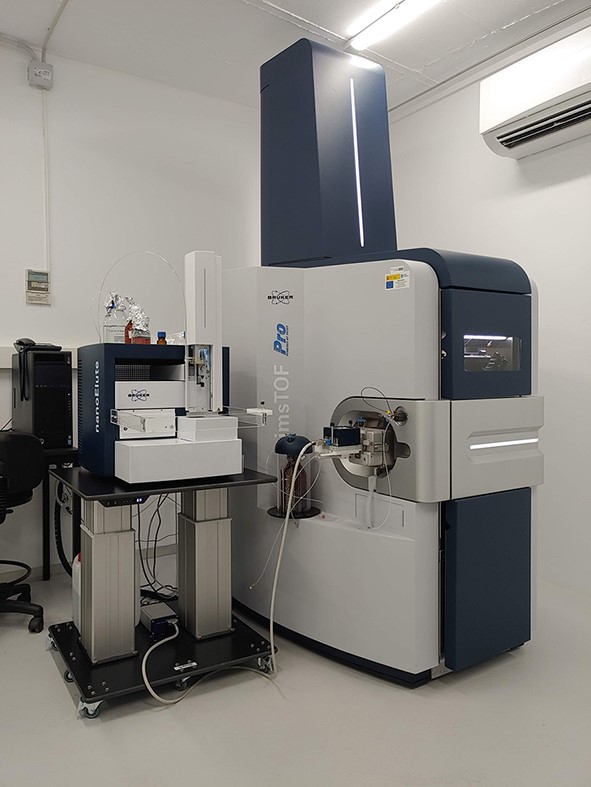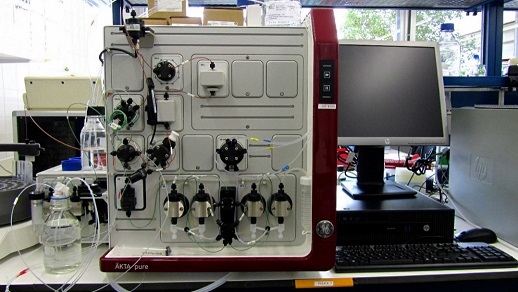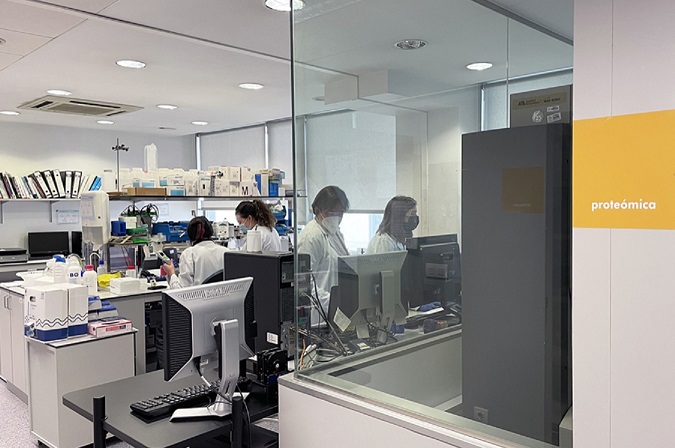
This brand new Cutting Edge Biomedical Solution allows you to obtain customized recombinant proteins and a wide proteomic characterization.
Scientific Leader / leaders of the project: Neus Ferrer Miralles / Cristina Ruiz Romero
Coordinator of the project: Merce Márquez Martínez (U1)
The usability of recombinant proteins across diverse applications largely depends on their similarity to physiological counterparts. To maximize the probability of achieving a successful protein it is necessary to conduct proteomic studies for its deep characterization. These studies, among other objectives, aim to identify the purified protein, ascertain its molecular weight, and analyze post-translational modifications or putative molecular interactions.
Proteomic studies using mass spectrometry play a crucial role in establishing production and purification procedures for recombinant proteins on a case-by-case basis and ensuring their quality for various applications. They provide valuable information on the identity, purity, structural integrity, consistency, reproducibility, and functional aspects of these proteins, ultimately contributing to the success of various biotechnological and biomedical applications.
Examples of CIBER BBN collaborative intramural projects implementing this Cutting-Edge Biomedical Solution:
Recently, two collaborations have been conducted, enabling the supply of properly identified active recombinant proteins to the client.
Both proteins were designed, produced and purified by U1, and finally characterized by U30. To preserve the confidential rights of our users, we cannot provide more details on the type of protein nor the name of the companies.
Services involved:
The U1 Protein Production Platform is responsible for designing, producing, and purifying recombinant proteins tailored to the requirements of clients. The U30 Proteomics unit performs characterizations on these recombinant proteins by mass spectrometry, typically involving their identification and, as necessary, carrying out additional analyses based on specific needs (i.e., analysis of post-translational modifications, quantitative studies, and others).
 |
The PPP Unit is at the Institute of Biotechnology and Biomedicine of the Autonomous University of Barcelona (IBB-UAB). It counts with the necessary facilities for the design, production, and purification of recombinant proteins. This facility is coordinated by the Nanobiotechnology Group, led by Prof. Antonio Villaverde. It has both highly specialized personnel and the necessary equipment to offer a “tailored” service for the design, production, and purification of recombinant proteins using both prokaryotic and eukaryotic expression systems. Its location allows this service to be linked with other complementary services available within the university (Cell Culture, Cytometry, Production of Antibodies, Microscopy, Proteomic, and Bioinformatic, X-ray crystallography, and Microarray and Sequencing Services), as well as facilitating the management of subsequent uses of the produced protein. |
 |
The Proteomics Unit is at the Biomedical Research Institute of A Coruña (INIBIC-CHUAC-UDC). It counts with all necessary facilities for the analysis of proteins at a small- and large-scale, including three mass spectrometers, liquid chromatographs, electrophoresis systems and instruments for immunoassay development and readout. |